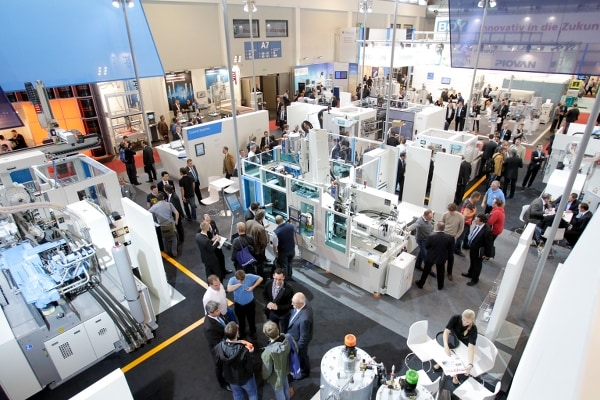 The numbers speak for themselves: more than 1166 companies have already registered to participate at the Fakuma international trade fair for plastics processing, who will occupy roughly 915,000 square feet of overall exhibition floor space. The exhibitors, including manufacturers, distributors and dealers, will come from 30 countries this year. Naturally, and in accordance with its position as a technology leader, the largest group of exhibitors, namely 640, will come from Germany, followed by Switzerland with 62, Italy with 59, Austria with 27 and China with 21.
The numbers speak for themselves: more than 1166 companies have already registered to participate at the Fakuma international trade fair for plastics processing, who will occupy roughly 915,000 square feet of overall exhibition floor space. The exhibitors, including manufacturers, distributors and dealers, will come from 30 countries this year. Naturally, and in accordance with its position as a technology leader, the largest group of exhibitors, namely 640, will come from Germany, followed by Switzerland with 62, Italy with 59, Austria with 27 and China with 21.There's still plenty of time until the event takes place from 14 to 18 October 2014, and the halls of the ultramodern Friedrichshafen Exhibition Centre on Lake Constance will surely fill up before opening day. And thus Fakuma takes the undisputed, worldwide pole position for its 23rd edition once again amongst all trade fairs for industrial plastics processing including injection moulding, thermoforming and extrusion.
Assuming that the world economy is persistently stable in 2014, insofar as no politically motivated disruptive action takes place, the manufacturers and distributors of plastic products are prepared to invest - especially against a backdrop of rising pressure to reduce the consumption of energy and resources in the broad ranging field of plastics processing. Several trends can be inferred from this which influence the number of exhibitors and the overall range of offerings.
1. Conventional rapid prototyping is a thing of the past - universal 3D printing is up-to-date, in most cases with original materials that generate usable end-products on the basis of virtually conceptualised models.
2. Inline production processes and quality assurance - advancing miniaturisation of parts, assemblies and devices, together with increasing degrees of functions integration, necessitate quickly adaptable to entirely new means of production and the incorporation of inline inspection systems in order to produce top quality and avoid expensive scrap right from the very start.
3. Consistent process automation in the form of robots, material flow and handling technology on the basis of resultant part positioning and orientation for ongoing, further processing.
4. The necessity to return most waste plastic to the production cycle - be it process waste, no longer required components, assemblies and devices or raw materials gained through recycling - is plainly evident today for reasons of acceptance and not least of all economy, and will be even more so in the future. Further processing takes precedence over use for the purpose of generating energy, especially in light of the fact that material loops can be closed by means of processing, while at the same time creating value.
Fakuma 2014 is comprehensively dedicated to all relevant issues covering all aspects of plastics processing and will present current offerings for technologies, processes, materials, machines, tooling, products and system solutions in a compact format.



